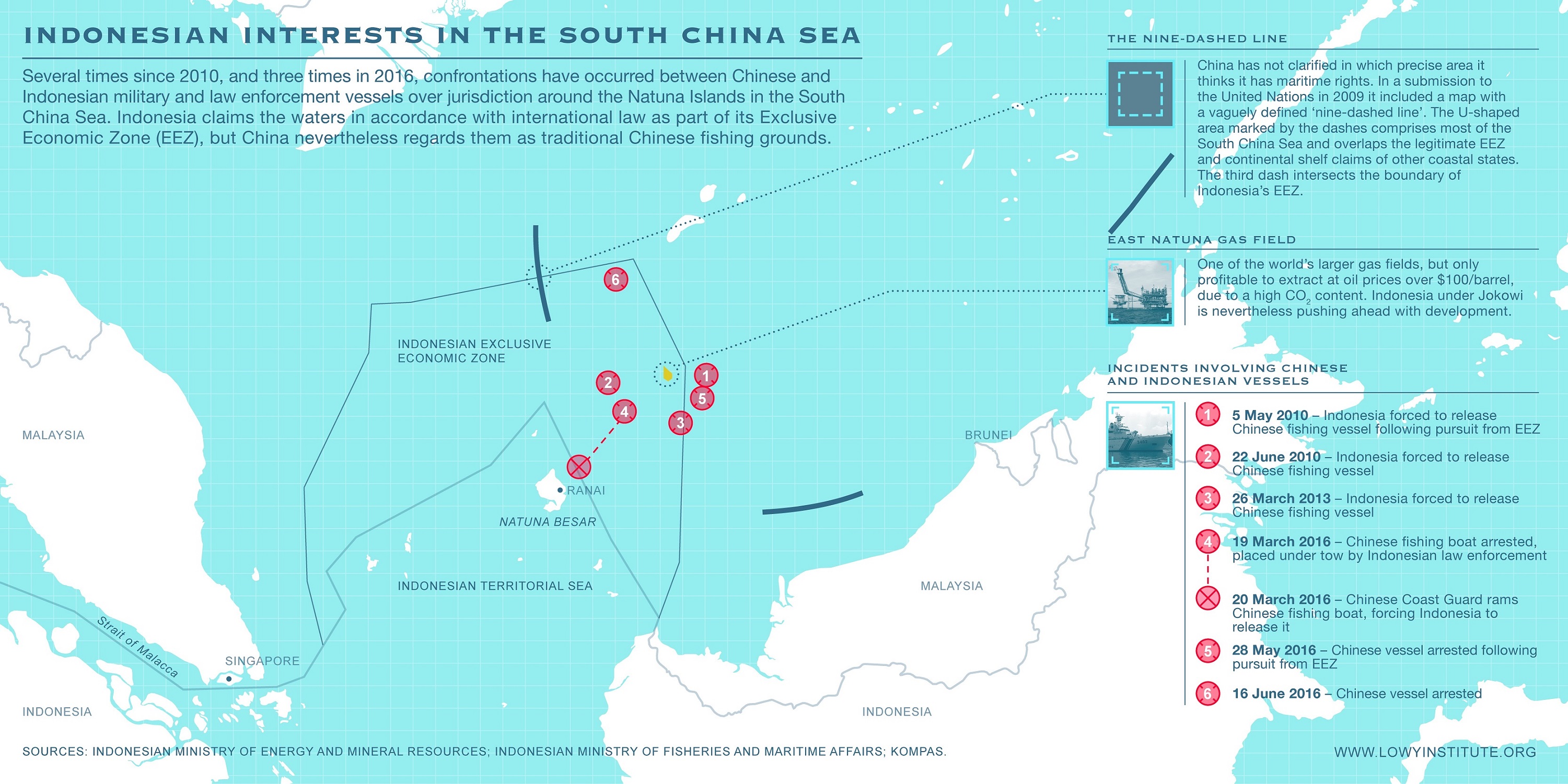Southeast Asia’s largest economy is defending its maritime rights within the disputed South China Sea in a perceived act against Chinese encroachment.
Indonesia has long maintained an exclusive economic zone in waters claimed by Beijing, but unlike many of its neighbors, it’s never been a player in the long-simmering conflict that’s weighed on intra-Asian relations. China, Vietnam, the Philippines, Malaysia, Brunei and Taiwan all assert sovereign rights over parts of the South China Sea, which is rich in resources and boasts key maritime routes.
Recent actions revealed Jakarta’s heightened commitment to safeguarding its boundary as Beijing expands its footprint in the area.
On Friday, President Joko Widodo’s administration renamed the northern side of its economic zone, home to significant oil and gas activity, as the North Natuna Sea. That same day, Indonesia’s military signed a memorandum of understanding with the Ministry of Energy and Mineral Resources to provide land and maritime security for resource exploration activities.
Justifying the move, General Gatot Nurmantyo said offshore drilling activities were often disturbed by “foreign-flagged vessels,” The Jakarta Post quoted him as saying.
Those foreign ships are widely believed to be Chinese.
“This is almost certainly aimed at protecting Indonesia’s sovereign rights in the vicinity of the Natunas from encroachments by China, though of course Jakarta would never name and shame China publicly,” said Ian Storey, senior fellow at Singapore-based think tank ISEAS-Yusof Ishak Institute.
“As China’s navy grows stronger, and its large fishing fleets move further south in search of lucrative fish stocks, Jakarta’s concerns have grown, as well as its determination to safeguard its maritime resources.”

Map courtesy of the Lowy Institute.
Friday’s news is specifically designed to reassure oil and gas companies operating in Indonesia’s offshore energy fields, Storey added.
China, the world’s second-largest economy, has a deep track record of disruptive behavior in the South China Sea. Beijing has constructed artificial islands within the Philippines’ exclusive economic zone and in 2014, the Chinese deployed an oil rig into waters claimed by Vietnam.
“The Chinese have also disrupted Indonesia’s fishery law enforcement operations,” said Collin Koh Swee Lean, a research fellow at Nanyang Technological University’s maritime security program.
Risk analytics firm Verisk Maplecroft forecast a 24 percent chance of militarized disputes between Indonesia and China in the next 12 months.
However, Beijing may not be Jakarta’s sole concern.
“Friday’s MOU is a general precaution against any potential foreign interference into Indonesia’s oil and gas activities, not necessarily just China,” Lean continued.
“Indonesia also has maritime boundary disputes with other ASEAN countries, such as Vietnam. In the Celebes Sea, Indonesia still has an unresolved dispute with Malaysia over the Ambalat hydrocarbon block — the scene of several naval standoffs in 2002 and 2009.”
Jakarta’s intensified defense in the South China Sea comes amid similarly bold maneuvers from the Philippines and Vietnam.
Last week, Manila suggested it could soon resume oil and gas drilling in the Reed Bank, also located in China-claimed waters, after a three year suspension. Meanwhile, a joint venture led by Vietnam’s state-owned energy firm PetroVietnam recently began drilling for gas near the disputed Paracel Islands, which Hanoi and Beijing both say belong to them.
Source: cnbc china
Indonesia is protecting its South China Sea turf against 'foreign' threats